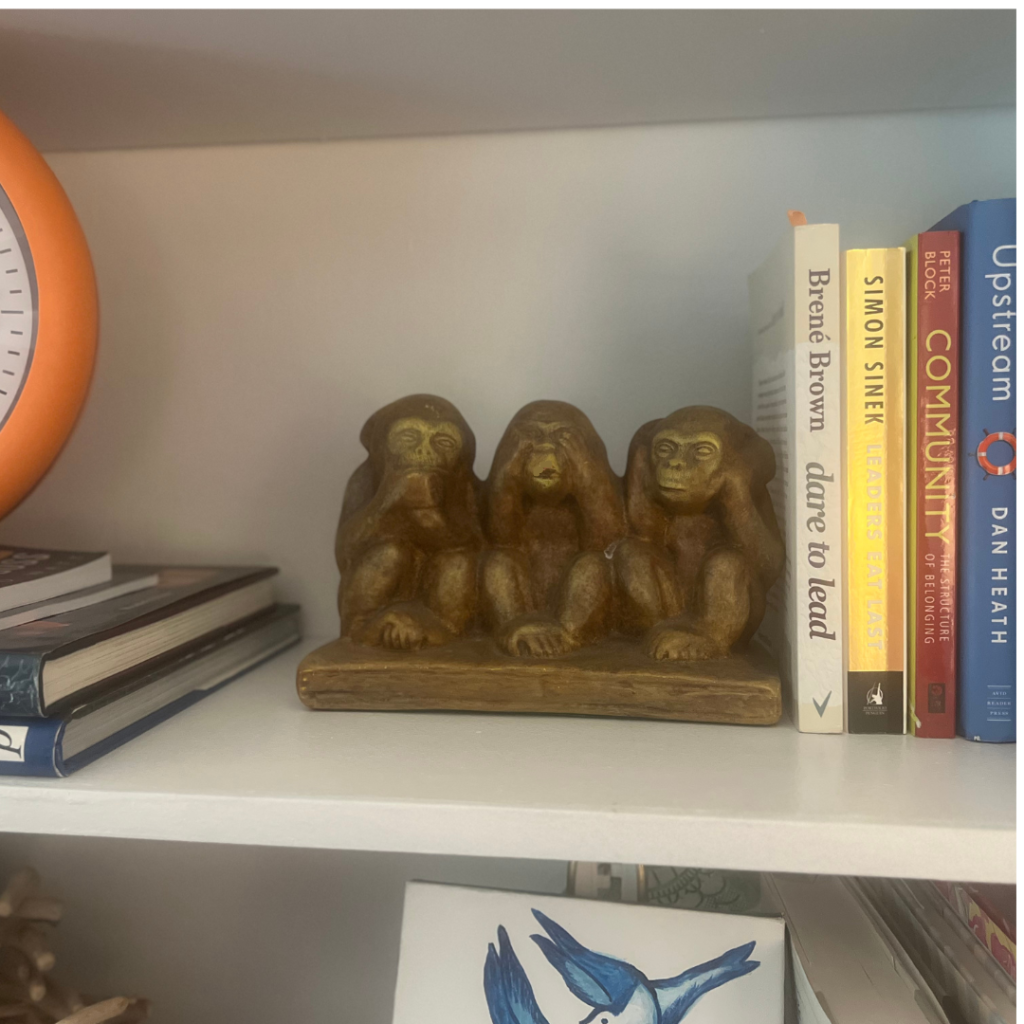by Cyndee Harrison
Imagine this: You’ve spent months, maybe years, developing a brand that reflects your values, only to find out one day that a competitor has started using something almost identical. It’s a gut punch, right?
Recently, a friend of mine sent me a photo of a logo almost an exact copy of his, used by another business in his industry—just 100 miles away. Not long after, I found out that a former client had begun using a name that, for several years now, we’ve registered as a DBA. They just added one word to it.
These experiences made me reflect on why originality matters in branding—not just from a legal perspective, like trademark protection, but as a matter of integrity. If your audience sees you copying someone else, can they ever fully trust you?

What Is a Brand? More Than Just a Name or Logo
Branding goes far beyond a logo or a catchy tagline. It’s the experience, emotion, and trust your audience builds with your business. It undermines your relevance when your audiences see you copying someone else’s work. Originality in branding isn’t just about avoiding trademark infringements; it’s about keeping the trust you’ve earned. If you lose your originality, you risk losing your audience’s confidence. And once that’s gone, it’s hard to get back.
Your brand isn’t just your logo, website colors, or slogan. It’s the way people feel when they think of your business. It’s the unique identity you’ve crafted through hard work, creativity, and consistency. In a market full of options, originality sets you apart. Without it, you’re just one more business, blending into the noisy crowd. In today’s marketplace, cutting through the noise is more important than ever.
The Fine Line Between Inspiration and Copying
There’s no harm in being inspired by others. Many great brands have built on the ideas of others, adding their own twist to create something new. But copying is a different story. If your brand looks or feels too much like someone else’s, it confuses consumers and damages the credibility of both brands. Think of it like attending an event in perfectly tailored attire, only to find someone else wearing the exact same outfit. It’s awkward, right? That’s what copying feels like in the business world.
Trademark laws protect businesses from having their intellectual property, like logos or names, used by others in a way that confuses consumers. But integrity goes beyond the legal definition. Even if what you’re doing isn’t technically trademark infringement, it still matters if your audience sees you as unoriginal. Consumers trust brands that are authentic. A registered trademark is vital, but your reputation as a brand built on integrity is priceless, not just for sales, but for the culture of everyone involved in your brand. If your employees see you copying someone else, can they ever fully trust you?
The Effect of Copying on Your Reputation
Copying sends a message that you’re not capable of creating something unique. It’s like borrowing someone’s homework and expecting to get the same grade—they might not catch you right away, but eventually, the truth comes out. When your audience sees that you’ve copied someone else’s branding, it reflects poorly on your creativity, integrity, and ability to innovate.
Let’s look at a famous case—Apple vs. Samsung. Apple accused Samsung of copying the iPhone’s design, and while Samsung still made impressive devices, public perception took a hit. In the court of public opinion, copying always damages the copier’s reputation and sometimes even the original’s.
Consumers Value Originality
Originality isn’t just nice to have—it’s expected. Today’s consumers have access to countless options, and they want more than just a product or service; they want to feel good about their choice. If your customers see you copying someone else, can they ever fully trust you?
Originality tells your audience that you’re trustworthy, creative, and willing to go the extra mile. It tells them you’re not just following trends—you’re setting them. And that’s a powerful way to crush your competitors while serving your stakeholders.
When you’re authentic, customers see your brand as a leader. Leaders, not followers, build lasting brand loyalty.
Editor’s Note about the Featured Image: This photo is of the bookshelf behind the desk where I work every day. I’ve long been fascinated by the ‘Wise Monkeys’ statue and have collected several of them over the years. Apparently, there are a few different stories about the meaning behind these monkeys and their poses, but the one that resonates with me is attributed to Mahatma Gandhi. Ghandi’s one notable exception to his lifestyle of non-possession was a small statue of the three monkeys as a reminder to always speak the truth no matter how hard it is, speak for those unable to speak for themselves, listen intently and empathetically, and see the good in life.
